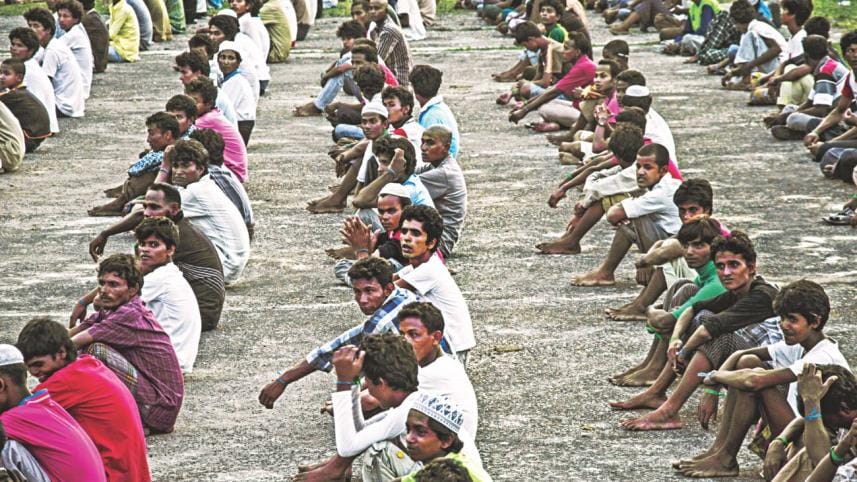Dhaka points at 'external factors'

Challenging a general perception of the cause of illegal migration from the country, Bangladesh yesterday insisted that poverty is not necessarily the main factor pushing "some of our people into the hands of traffickers".
Rather, there are "external factors and forces" behind the so-called exodus, claimed a Bangladesh delegation led by Foreign Secretary Md Shahidul Haque at the "Special Meeting on Irregular Migration in the Indian Ocean" in Bangkok.
While different international agencies working in the fields of trafficking, migration and cross-border crime identified many Bangladeshi victims as economic migrants, the Bangladesh delegation differed on this.
"We have sustained an average GDP growth rate of 6.2 percent over the last six years. We have reduced poverty by nearly 2 percent each year, and lifted 50 million people out of poverty during this time," the foreign secretary said.
With a limited resource base, Bangladesh has made impressive gains in human development and attained almost all of the MDGs ahead of time, Shahidul Haque said.
"In such a context, there must be some other factors or forces at play beyond our immediate control that create vulnerability or false incentives for our people to risk their own lives at sea."
To identify these factors, "we may have to look for external factors and forces", said the secretary, who led a five-member delegation to the meeting, attended by representatives of 17 countries and three international agencies.
Citing initial estimates, the Bangladesh delegation said there are about 30 percent of Bangladeshis among the victims recently rescued in Thailand, Malaysia and Indonesia.
"We shall arrange to conclude the nationality verification of these people within the shortest possible time, and shall repatriate them to Bangladesh preferably within a month or so," Shahidul Haque said.
Bangladesh is deeply concerned over the unfolding humanitarian tragedy in the Indian Ocean, and considers this to be "a direct challenge to our 'zero tolerance' approach to human trafficking", he continued.
The country is determined to go all the way to stop and reverse this trend, he asserted.
"Since May 1, 2015, our Coast Guard has intercepted a number of boats in our waters and rescued 132 people and our naval forces remain on alert to go up to the high seas to rescue victims and bring the culprits to justice," the foreign secretary was quoted by the BSS as saying in the meeting.
In 2014, there were 682 trafficking related cases involving a total of 2,834 accused, and among those convicted, 12 were sentenced to life imprisonment, Shahidul Haque added.
 For all latest news, follow The Daily Star's Google News channel.
For all latest news, follow The Daily Star's Google News channel.
Comments